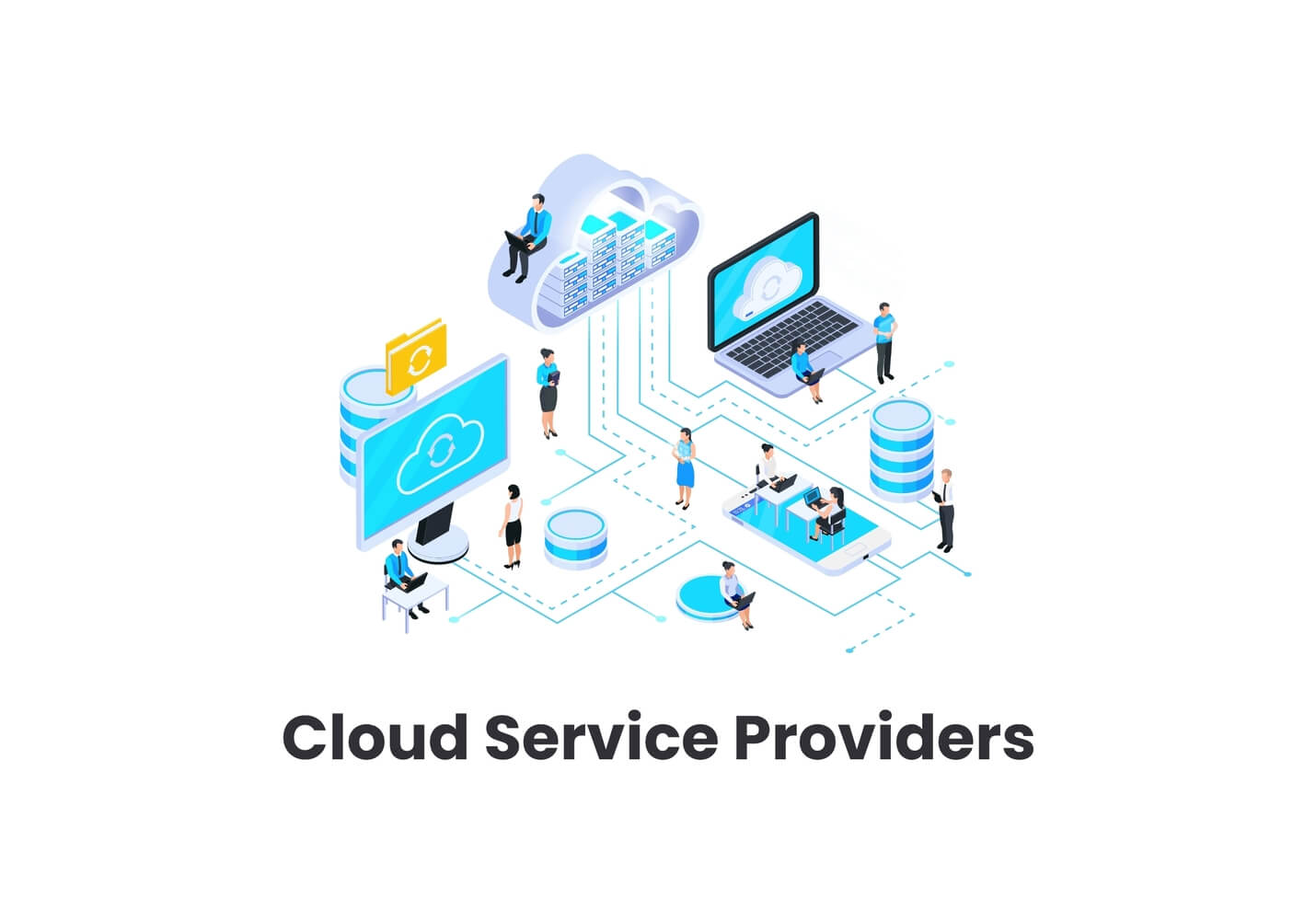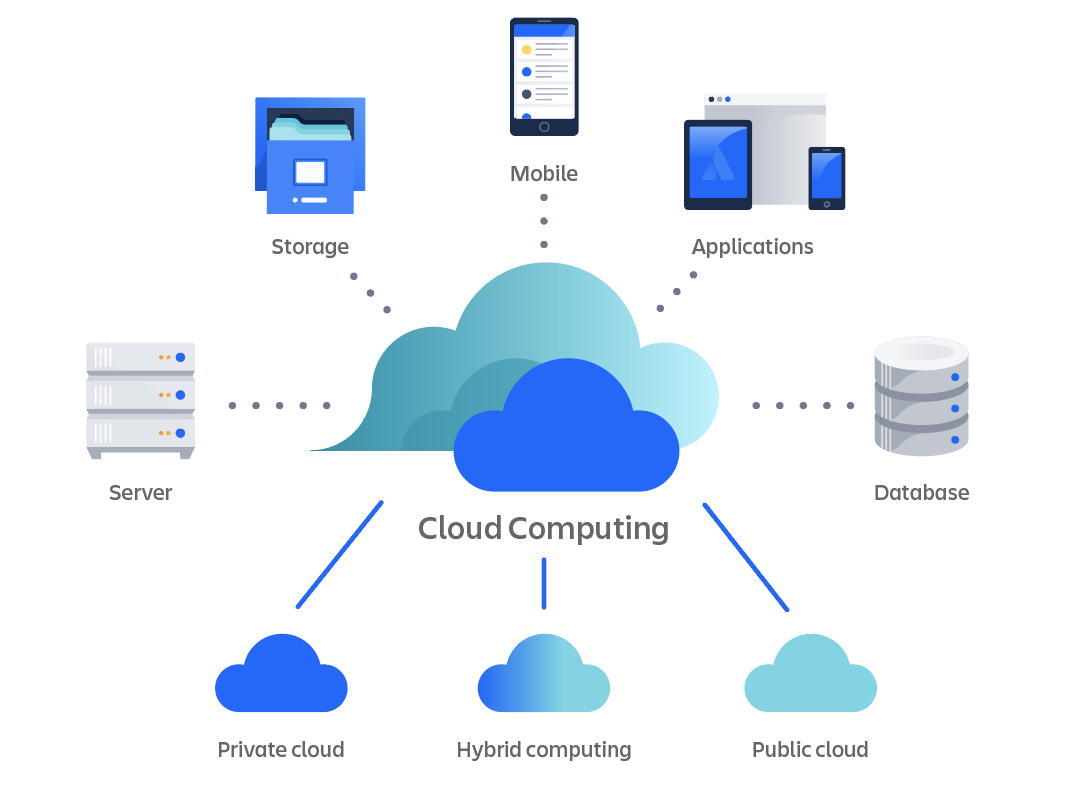A Thorough Introduction of Cloud Solutions and Their Effect On Industries
Cloud services have actually come to be an indispensable part of contemporary company operations, reinventing the method industries feature and communicate with technology. From scalability to cost-effectiveness, the advantages are obvious, however what truly establishes cloud solutions apart is their capability to tailor services for details industry demands. As we navigate through the complexities of cloud services and their influence on different markets, it is vital to discover the nuanced applications, address challenges, and prepare for future trends that will form the landscape of markets in the coming years.
Evolution of Cloud Provider
Over the previous years, the evolution of cloud services has actually changed the way services and people gain access to, store, and take care of information. Cloud solutions mostly supplied storage space solutions, allowing users to submit and obtain information from remote servers. As innovation advanced, cloud services increased to consist of a wide variety of offerings such as Software application as a Service (SaaS), Platform as a Service (PaaS), and Framework as a Solution (IaaS)
The advancement of cloud solutions has actually allowed companies to scale their operations much more efficiently, as they no longer require to buy expensive physical framework. This scalability enables services to adapt to altering needs quickly and without the restrictions of typical hardware constraints. Additionally, cloud services have assisted in global cooperation by offering real-time accessibility to data and applications from anywhere with an internet link.
As the demand for cloud solutions remains to expand, suppliers are frequently innovating to supply improved features such as expert system, artificial intelligence, and information analytics. The development of cloud services has absolutely changed the digital landscape, empowering services of all sizes to run even more flexibly and competitively in today's dynamic market.

Advantages for Services
With the increasing adoption of cloud services throughout sectors, companies are experiencing a myriad of benefits that enhance their functional effectiveness and competition. Rather, they can subscribe to shadow services on a pay-as-you-go basis, allowing for better spending plan management and scalability.
In addition, cloud services provide durable data safety and security and backups, making certain that critical company details is safeguarded from prospective dangers and disasters. Overall, the adoption of cloud services equips businesses to enhance their operations, introduce more successfully, and acquire an affordable side in today's fast-paced company landscape.
Industry-Specific Applications
As companies harness the cost financial savings, flexibility, and boosted protection offered by cloud services, they are significantly exploring industry-specific applications customized to maximize their procedures and drive innovation. Cloud services are revolutionizing various markets by using specialized remedies that provide to details demands and obstacles. Retail businesses leverage cloud services for stock administration, individualized advertising and marketing methods, and smooth omnichannel experiences for clients.
Challenges and Solutions
Exactly how can businesses effectively navigate the obstacles presented by the integration of cloud services right into their operations while maximizing the benefits they use? One of the main challenges dealt with by services when adopting cloud services is information safety and security and privacy. Turning over delicate information to a third-party provider calls for durable safety and security steps to safeguard versus information breaches and unapproved gain access to. To address this, companies have to implement security methods, gain access to controls, and routine security audits to guarantee the protection of their information.
Another substantial difficulty is ensuring seamless assimilation of cloud solutions with existing IT infrastructure. Compatibility problems, data migration intricacies, and interoperability read here concerns can hinder the smooth shift to the cloud. Organizations can overcome this difficulty by performing complete compatibility evaluations, buying combination tools, and supplying thorough training to staff members to properly utilize the new cloud services.
Additionally, price management and scalability existing difficulties as companies strive to optimize their cloud use while regulating costs. Carrying out cost surveillance devices, utilizing scalable resources efficiently, and occasionally reassessing cloud usage can help companies strike a balance between cost-effectiveness and scalability. By proactively dealing with these difficulties with calculated remedies, organizations can harness the complete possibility of cloud solutions to drive innovation and growth.
Future Trends and Innovations
Amidst the continuous development of cloud solutions and the essential for businesses to deal with obstacles such as data security and assimilation intricacies, the landscape of future fads and technologies in cloud modern technology is positioned to form markets dramatically. One prominent pattern imminent is the enhancing fostering of hybrid and multi-cloud approaches. universal cloud Service. Organizations are identifying the advantages of leveraging multiple cloud providers to improve strength, scalability, and flexibility. This trend is driven by the demand to enhance performance and cost-effectiveness while mitigating threats connected with vendor lock-in and possible downtime.
Moreover, the surge of edge computing is readied to revolutionize cloud services by bringing data handling closer to the resource of data generation. This change promises low-latency handling, boosted data transfer efficiency, and enhanced real-time decision-making capacities. As industries continue to create substantial amounts of data, edge computing will play a crucial role in making it possible for much faster activities and insights. Additionally, the combination of expert system (AI) and maker learning (ML) modern technologies into cloud services is anticipated to improve procedures, boost customization, and drive technology across different sectors. By using the power of AI and ML, organizations can open brand-new possibilities for automation, predictive analytics, and client engagement.

Conclusion
In verdict, cloud services have transformed markets by giving scalable, cost-effective services for services. The development her explanation of cloud solutions has actually led the way for industry-specific applications, using tailored solutions for check here various fields. While obstacles such as safety and data privacy continue, ingenious solutions are constantly being created to address these issues. As cloud innovation continues to advancement, the future holds interesting possibilities for additional combination and optimization throughout sectors.
As technology progressed, cloud solutions broadened to consist of a wide range of offerings such as Software program as a Service (SaaS), Platform as a Service (PaaS), and Infrastructure as a Service (IaaS) linkdaddy cloud services.
Additionally, cloud solutions supply robust data protection and back-ups, making certain that essential organization details is protected from prospective dangers and calamities. On the whole, the adoption of cloud services equips services to enhance their procedures, innovate much more efficiently, and acquire a competitive edge in today's fast-paced business landscape.
One of the main difficulties encountered by businesses when embracing cloud services is data security and privacy.In the middle of the ongoing evolution of cloud solutions and the vital for companies to resolve challenges such as information security and combination intricacies, the landscape of future trends and innovations in cloud innovation is positioned to form sectors substantially.